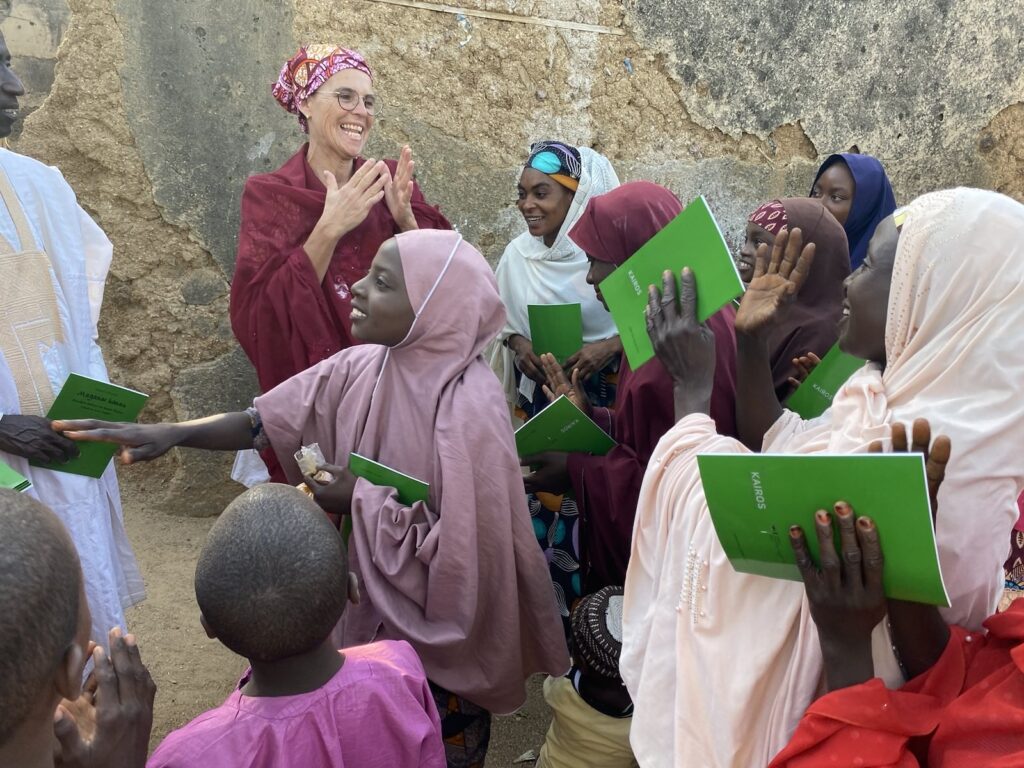Hausa Language Advocates Push for Deaf School Integration

Addressing Communication Barriers in Deaf Education
Advocates for inclusive education are urging the Federal Ministry of Education and state governments to integrate the Hausa language into the curriculum of Deaf and Special Schools in Northern Nigeria. They argue that this move would help bridge the communication gap between deaf students and their families, fostering better understanding and connection.
Comrade Yusuf Yahaya Kumo, founder of Inclusive Reporters and a prominent Deaf advocate, highlighted the challenges faced by many deaf children in predominantly Hausa-speaking communities. He explained that these children often grow up isolated at home because they are neither taught Hausa nor English effectively. As a Deaf person, he emphasized that communication barriers are one of the biggest challenges for individuals with hearing impairments, especially within their families and other social environments.
Kumo pointed out that in many Northern families, parents primarily speak Hausa but have limited proficiency in English. Meanwhile, deaf children are taught only English and English Sign Language in school, which their parents often do not understand. This situation is more pronounced in the North, where Hausa plays a significant role in daily life, unlike in the South, where English and sign language are more widely understood.
Kumo, who attended a special school in Gombe, noted that Hausa was not part of his curriculum during his time there. He admitted that he struggled with Hausa vocabulary and had to ask his family and siblings to teach him some words. Even today, he continues to face difficulties in understanding and using the language.
The call for Hausa inclusion is also supported by former students. Maryam Meria Nasiru, a former Head Girl of the Special Education Centre in Gombe, shared her experience of not having Hausa as part of her school curriculum despite it being the dominant language at home and in her community. She expressed frustration over her inability to communicate effectively with her parents in Hausa and stressed the need for curriculum reform. She believes that introducing Hausa alongside sign language and English would help her connect better with her family and community.
Similarly, Comrade Hadi Mohammed, President of the Nigerian University Association of Hearing Impaired Students (NUAHIS) at the University of Jos, shared his own experiences. He explained that although Hausa dominates in his community, neither his primary nor secondary school taught the language, leaving him unable to communicate effectively. He relies on local sign language to communicate with his family, but they don’t fully understand it. He feels isolated and worries about how to maintain effective communication with them.
Education stakeholders agree that the exclusion of Hausa has deepened the isolation among deaf students. Malam Safiyanu Ibrahim, a teacher at the Special Education Centre in Gombe, stated that the absence of Hausa as a subject has widened the communication gap between Deaf students and their families. However, he warned that implementing such changes would come with its own set of challenges. He pointed out that the lack of special teachers who understand both Hausa and sign language, as well as inadequate instructional materials, could hinder effective learning. He urged the government to not only include Hausa in the curriculum but also recruit qualified teachers and provide necessary learning facilities.
While acknowledging the passage of the Disability Rights Act in 2019 and the establishment of the National Commission for Persons with Disabilities (NCPWD), Kumo said more still needs to be done. He argued that while the Act rightly calls for the inclusion of sign language in school curricula, this effort must go further. Deaf students should also have access to their local languages. For Hausa-speaking communities, this means Hausa should be taught in schools to reduce the communication gap at home and in society.
Kumo further urged state Ministries of Education and the Federal Ministry of Education to expand the policy to other regions. He emphasized that in Yoruba-speaking communities, Yoruba should be taught; in the South East, Igbo should be taught. This approach, he believes, would help minimize communication barriers between Deaf students, their families, and their communities at large.
Beyond curriculum reform, stakeholders stressed the urgent need to rehabilitate Special Schools, many of which remain neglected. Kumo recalled visiting his alma mater, where a former governor's wife wept at the dilapidated condition of the school. He also cited former Kwara State Governor Abdulrahman Abdulrazaq, who apologized to pupils of a Special School after witnessing poor learning conditions. The Governor acknowledged the severity of the problem and pledged to allocate scarce resources more responsibly. He emphasized that basic needs are not met, and it is a shame that such conditions persist.

Comments
Post a Comment